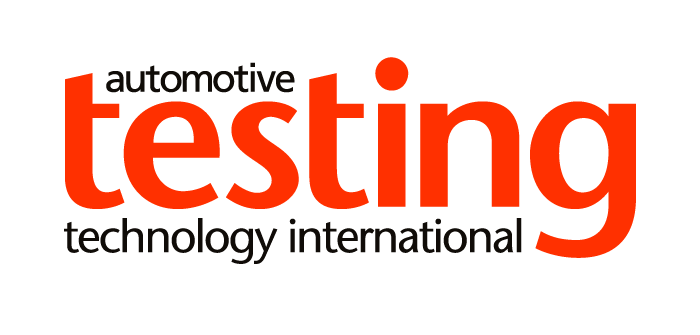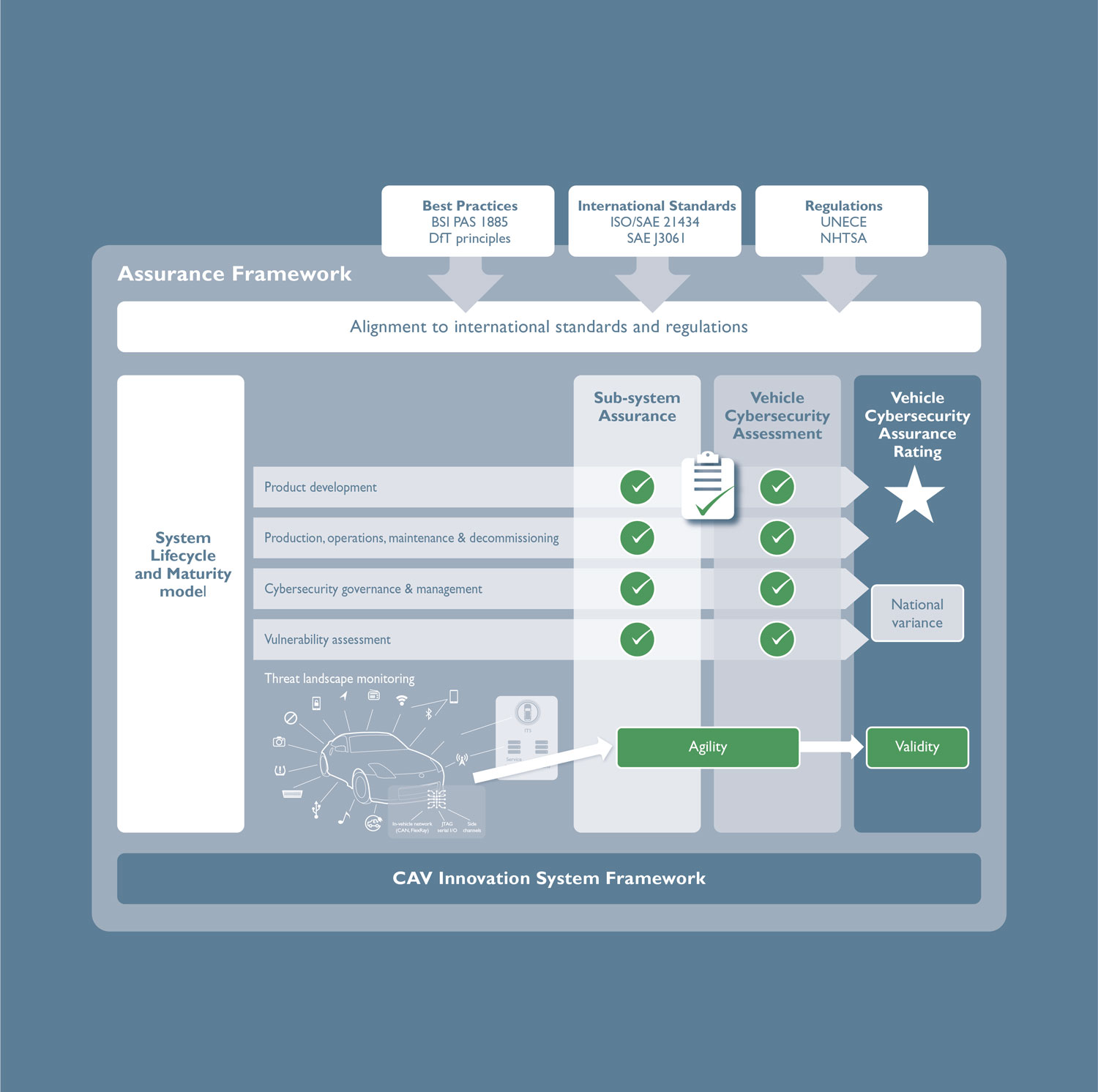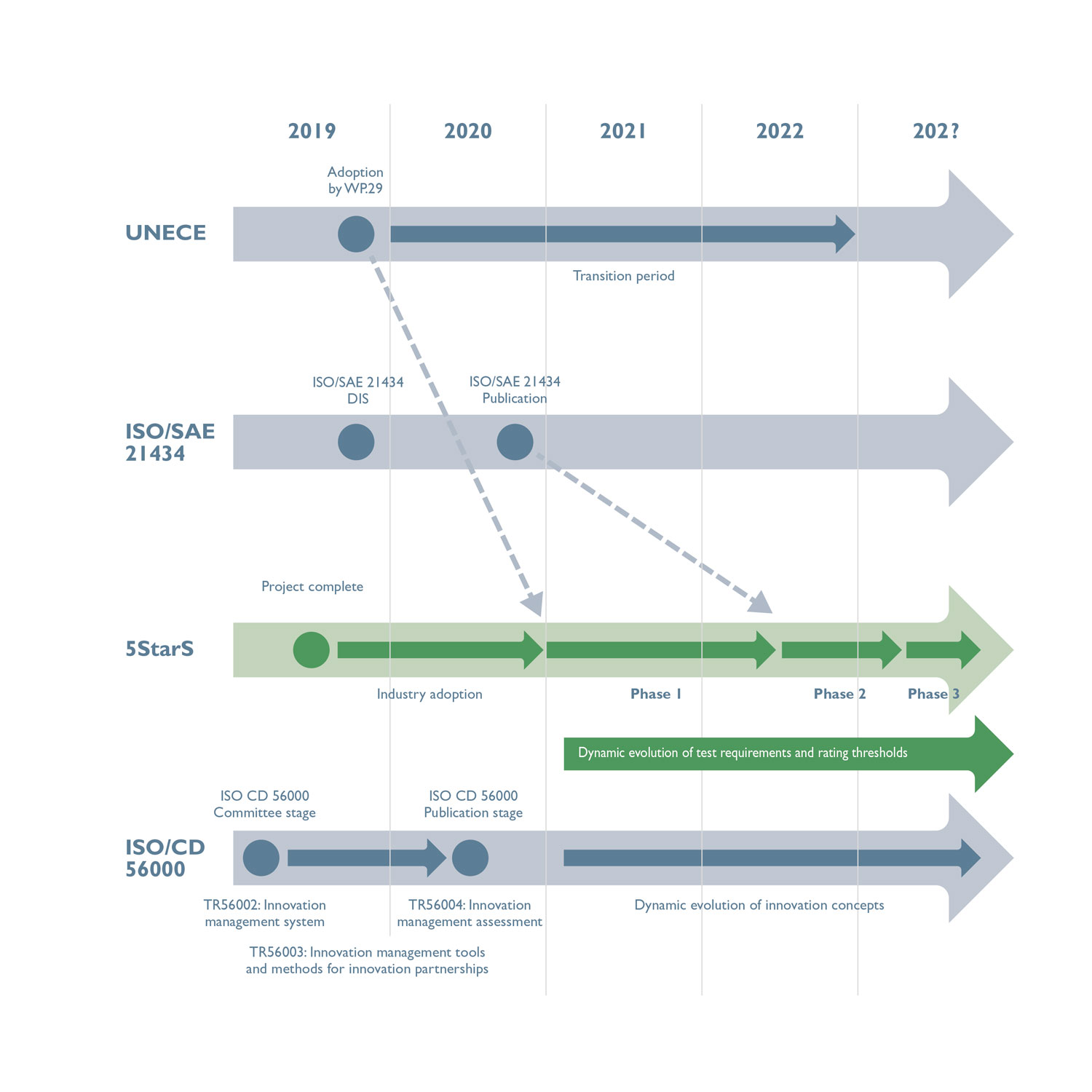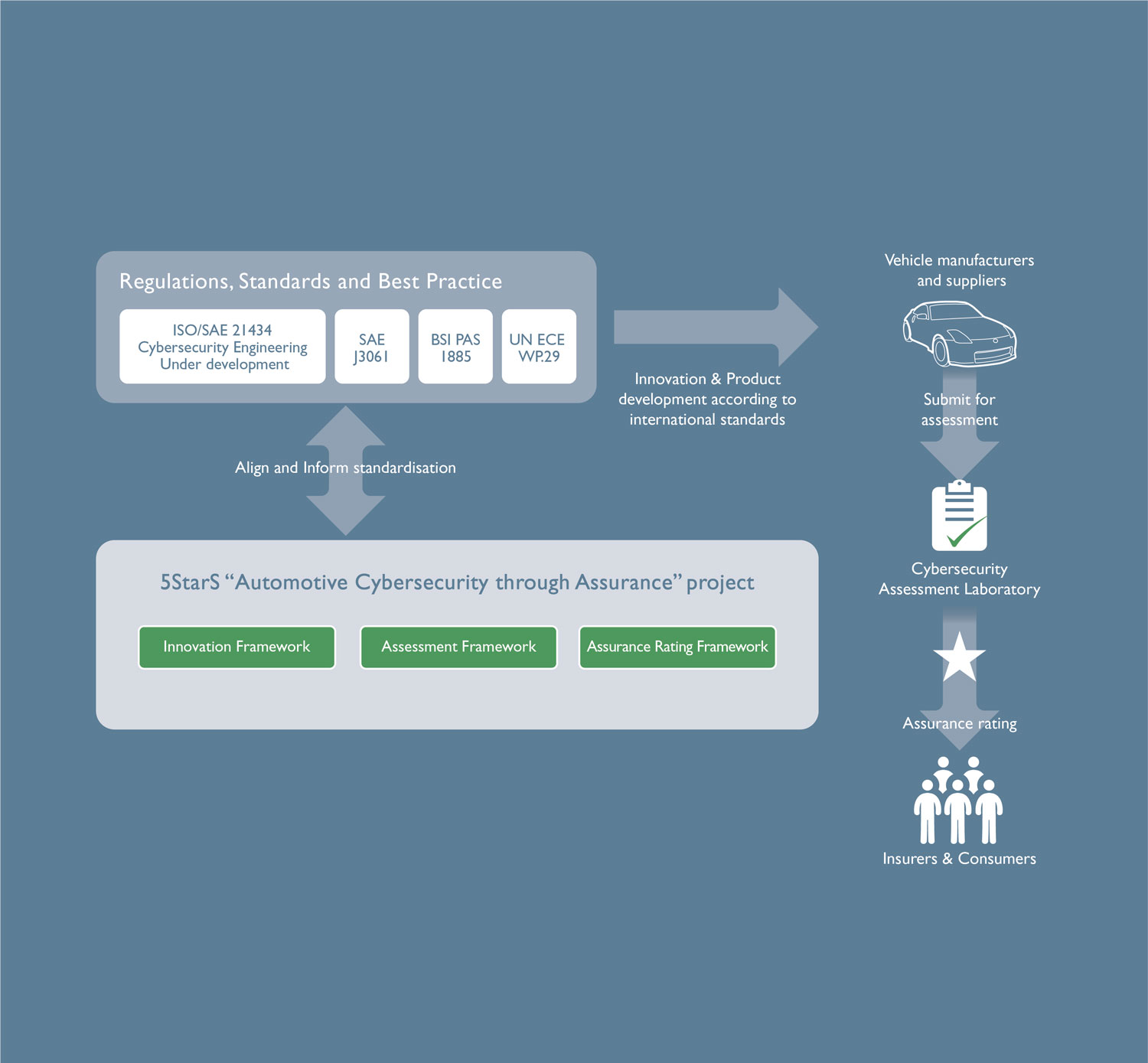The 5StarS consortium has launched its proposed assurance framework for connected and autonomous vehicle cybersecurity from design to end of life, following a two-year research project funded by Innovate UK.
With the objective of addressing increased cybersecurity threats of connected vehicles, the framework was developed using the combined the expertise of consortium members Horiba MIRA, Ricardo, Roke, Thatcham Research and Axillium Research.
The assurance framework sets out to build trust in the ability of manufacturers to mitigate against cyber threats and be resilient to attacks, as well as being able to demonstrate that they will respond quickly and effectively to attacks or vulnerabilities.
Ultimately with the framework in place, automotive manufacturers will be able to gain confidence in the capabilities of their products, use resilience as a market differentiator and establish meaningful ways of communicating cybersecurity risk to consumers.
Key benefits for vehicle makers implementing the framework include building consumer trust in the overall safety of vehicles; highlighting vehicle countermeasures against, and resilience to, cyber attacks; cyber risk being reflected in insurance premiums; and the ability to monetize good practice in cybersecurity through a rating that differentiates their products from the competition in consumers’ eyes.
Future of Mobility minister Michael Ellis commented, “Self-driving technology will help transform our society for the better, and the UK has led the way globally in supporting the world’s first standard on vehicle cybersecurity.
“The new assurance framework developed by the 5StarS consortium builds on this work, helping ensure this technology is safe, secure and resilient to cyber attacks.”
Paul Wooderson, cybersecurity principal engineer at Horiba MIRA and 5StarS project lead, said, “The 5StarS project has delivered a novel and scalable way for vehicle manufacturers to increase confidence in the cybersecurity of their products, from the design stage through the vehicle lifecycle, and demonstrate that to consumers and insurers.
“We are confident that the framework is a workable and positive response to the issues posed by new technology that enables vehicle manufacturers and others to deal with the risks but also consider the clear opportunities on offer.”





